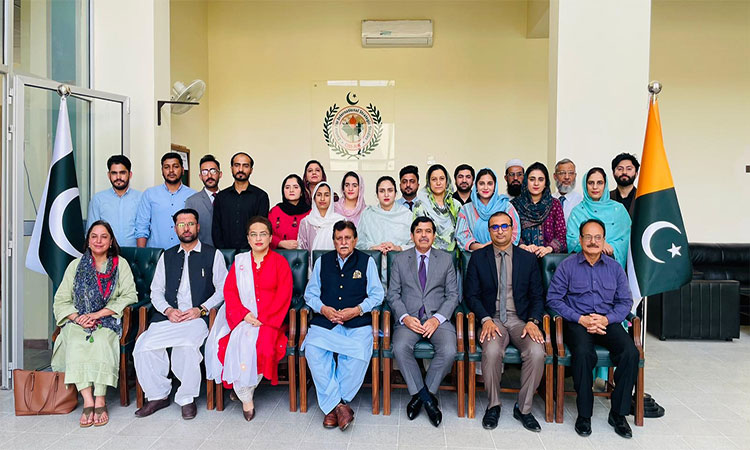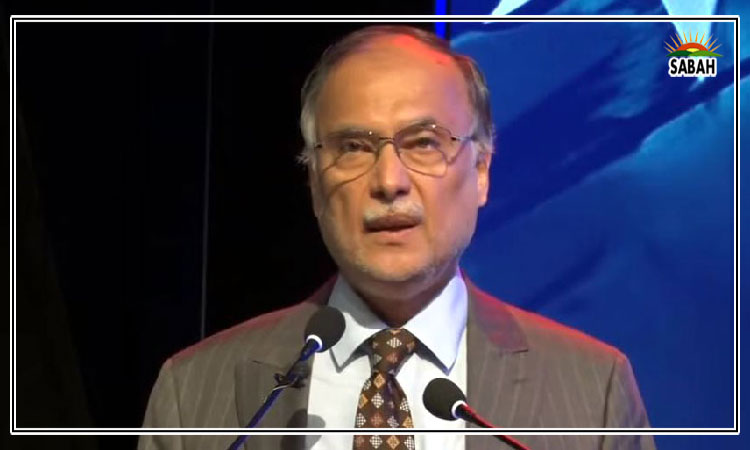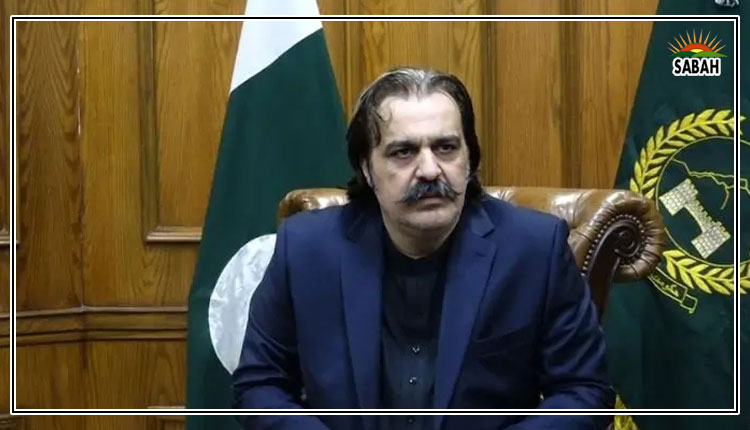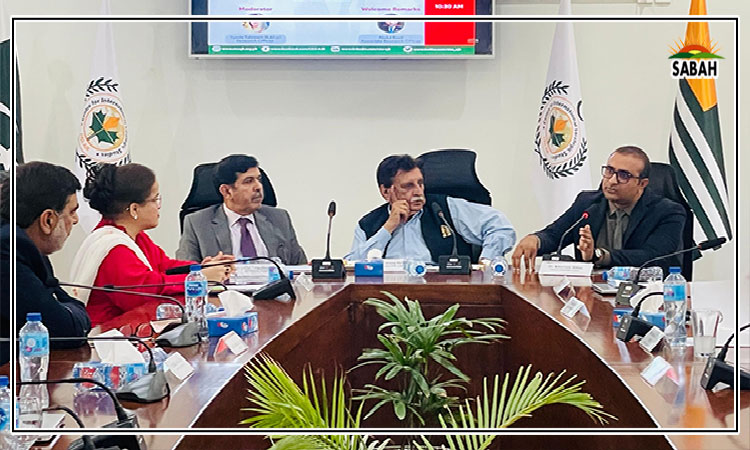CISS-AJK analyzes Modi’s reelection fallout on regional dynamics
MUZAFFARABAD, June 12 (SABAH): The Centre for International Strategic Studies Azad Jammu and Kashmir (CISS-AJK) hosted a landmark conference titled ‘From Campaign Rhetoric to Diplomatic Realities: Modi’s Reelection and the India-Pakistan Equation’ on Wednesday. The event provided a deep dive into the seismic shifts in regional dynamics triggered by India’s recent elections, focusing on the implications for Pakistan.

As part of its academic initiatives to foster research and policy development, CISS-AJK hosted this scholarly forum, drawing a distinguished audience. Former prime minister of Azad Jammu and Kashmir, Raja Muhammad Farooq Haider Khan, was among the notable guests who received a warm welcome from the CISS-AJK research team. The event saw the participation of researchers, dignitaries from academia, civil administration, and media representatives.
Dr. Khurram Abbas, Director of the India Study Centre, opened the conference with an incisive analysis of India’s strategic approach under Prime Minister Narendra Modi. He emphasized India’s various political, economic, and diplomatic tactics aimed at undermining Pakistan.
Major General (retd) Samrez Salik further delved into the strategic implications of India’s political landscape for Pakistan and the broader region. His insights underscored Pakistan’s heightened strategic challenges in light of Modi’s continued leadership.
Raja Farooq Haider provided a comprehensive overview of the evolving political scenario in Pakistan and its implications for India-Pakistan relations. He stressed the importance of developing a robust, long-term national policy to effectively counter India’s aggressive stance and resolve the protracted Kashmir issue.
The conference featured an interactive question-and-answer session, fostering a dynamic exchange of views among participants. Dr. Asma Shakir Khawaja, Executive Director of CISS-AJK, delivered the closing remarks, expressing gratitude to the guests and attendees. She highlighted the importance of their contributions, which significantly enriched the discourse and overall success of the event.
The conference underscored the critical need for continued scholarly engagement and policy-oriented discussions to navigate the complex geopolitical realities of the region.












